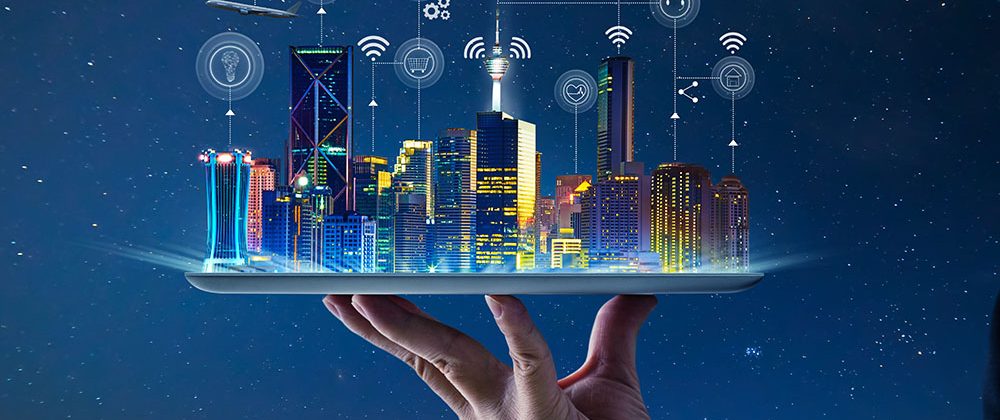Guilherme Araújo, Director of Services, Blockbit, explains how large metropolises rely on a secure network infrastructure to properly function with diverse devices and systems, from surveillance cameras and automated traffic lights to traffic management systems.

As cities progress in the implementation of technologies to become smart and more efficient, the issue of cybersecurity becomes increasingly critical. Guilherme Araújo, Director of Services at Blockbit, provides valuable insights into how big metropolises address the challenges of safeguarding their data and urban infrastructure in an ever-evolving digital landscape.
With the growth of Smart Cities worldwide and their promise to enhance citizens’ quality of life, there is an urgent need to ensure the security of these systems. This interview explores the potential economic and social impact of Smart City technologies, the risks of cyberattacks on urban infrastructure and the strategies governments and businesses use to protect connected cities.
Furthermore, we will discuss concrete measures such as the implementation of secure network infrastructures, data protection policies and cybersecurity education, all of which are essential for creating a safe and sustainable digital environment for all residents of Smart Cities.
How are cities addressing cybersecurity challenges as they progress in implementing technologies to become smarter and more efficient?
With the advent of the digital era and continuous technological advancement, cities are becoming increasingly smart. The innovative technologies such as sensors, connected devices and integrated management systems result in the opportunity to enhance public service efficiency, optimize urban planning and offer a higher quality of life to citizens.
However, this Digital Transformation comes with significant cybersecurity challenges that must be addressed to ensure the protection of data and the entire urban infrastructure.
What is the potential economic and social impact of Smart City technologies with rapid urbanization and the growing demand for smart solutions in cities?
Smart Cities are growing globally. According to the United Nations, the world’s population can reach 8.5 billion by 2030 and 9.7 billion by 2050, with highly populated countries such as India, China and Nigeria. Even countries with stricter population controls will face equally significant modernization challenges.
This rapid urbanization creates a demand for smart solutions to address urban challenges such as transportation, infrastructure, energy and public services.
Consequently, the average annual growth rate of the global Smart City market is estimated to be around 19% by 2025, potentially reaching a value of nearly US$152 billion in the coming years.
Given the critical importance of network infrastructure in Smart Cities, how are governments and companies addressing the cybersecurity of these systems to protect against potential cyberattacks that could impact city security and operations? What are the key measures to mitigate these threats?
These metropolises depend on a secure network infrastructure to properly function with many devices and systems, from surveillance cameras and automated traffic lights to traffic management systems. Controls also extend to services like energy and supply.
Therefore, potential security lapses in these systems could lead to devastating consequences, as cyberattacks targeting public services can disrupt city operations by attacking strategic fronts that could compromise the safety of all citizens.
In addition to immediate risks, the lack of secure infrastructure in Smart Cities also threatens people’s privacy. With the increasing amount of personal data collected by urban systems, such as location information and consumption habits, there is a significant potential for unauthorized access to this data. It can result in privacy breaches and even cybercrimes, such as identity theft, digital information kidnapping and financial fraud in the names of third parties.
Given the potentially harmful impact of cyberattacks on monitoring systems, critical infrastructure and public services in Smart Cities, how are authorities and companies collaborating to ensure the resilience of these systems?
The cybersecurity challenges in Smart Cities are diverse and extensive, requiring special attention from authorities and careful monitoring by companies and the population, which can be severely affected. Manipulating monitoring systems, for example, can compromise the effectiveness of public security efforts.
Hackers can alter surveillance camera video feeds, disguise suspicious activities or disarm alarms, making it harder to detect and prevent crimes.
Critical infrastructures such as water and energy supply systems, transportation systems and emergency services are also at risk, vulnerable to targeted attacks and significant disruptions capable of causing social impacts and economic losses.
Given the multiple dimensions of cybersecurity in Smart Cities, what are the concrete strategies and actions public authorities and governments are adopting to ensure the protection of urban infrastructure and citizen data? How can these measures be useful in preventing cyberattacks and promoting a safe environment for connected cities?
Another area that requires protection is cyber espionage and sabotage for the misuse of information. It raises serious concerns, starting at the individual level and extending to national security, potentially undermining a country’s sovereignty.
Given these challenges, public authorities and governments must adopt effective measures to ensure data protection and, consequently, the urban infrastructure of increasingly connected cities. Among the considerations are:
• Secure network infrastructure: A robust and secure network infrastructure is crucial to protect communication between devices and urban systems. It includes appropriate security protocols, encryption and digital security solutions.
• Data protection and privacy: Clear and rigorous data protection policies should be in place to ensure that citizens’ personal information is collected, stored and used correctly, securely and ethically. It involves compliance with privacy regulations, such as the Brazilian General Data Protection Law (LGPD, in Portuguese).
• Awareness and education: Educating citizens, businesses and governments about the cybersecurity risks connected cities may face is crucial. Literacy involves specialized training in best practices and the use of protection systems. It helps create a security culture to mitigate potential issues.
• Security testing and regular assessments: City infrastructures should undergo rigorous security testing to identify vulnerabilities and security flaws, similar to what companies are starting to do routinely. In addition, regular assessments should include simulations to verify security measures that need improvement to enhance system protection.
Considering the importance of harnessing the benefits of Smart Cities to improve the quality of life for citizens, how can we balance technological advancement with cybersecurity and societal awareness? What steps can be adopted to create a secure and sustainable digital environment for all residents?
I understand that Smart Cities can also offer numerous opportunities to improve the quality of life for citizens and drive urban development. However, to fully realize these benefits, it is crucial to address cybersecurity challenges and have a united society to ensure greater digital security.
With the adoption of modern protection systems and everyone informed about the conduct to be followed, we will have a safe and sustainable digital environment.
About Blockbit
Blockbit is a Brazilian cybersecurity company with global operations, offering high-tech solutions to protect organizations of all sizes against cyberattacks and digital threats. To achieve this, Blockbit combines experience, analytical intelligence and innovation as keys to developing a comprehensive security platform aligned with the latest global cybersecurity trends.
Blockbit has a state-of-the-art intelligence laboratory and a network of more than 150 global partners to serve over one million users and 3,000 corporate clients.
Click below to share this article

